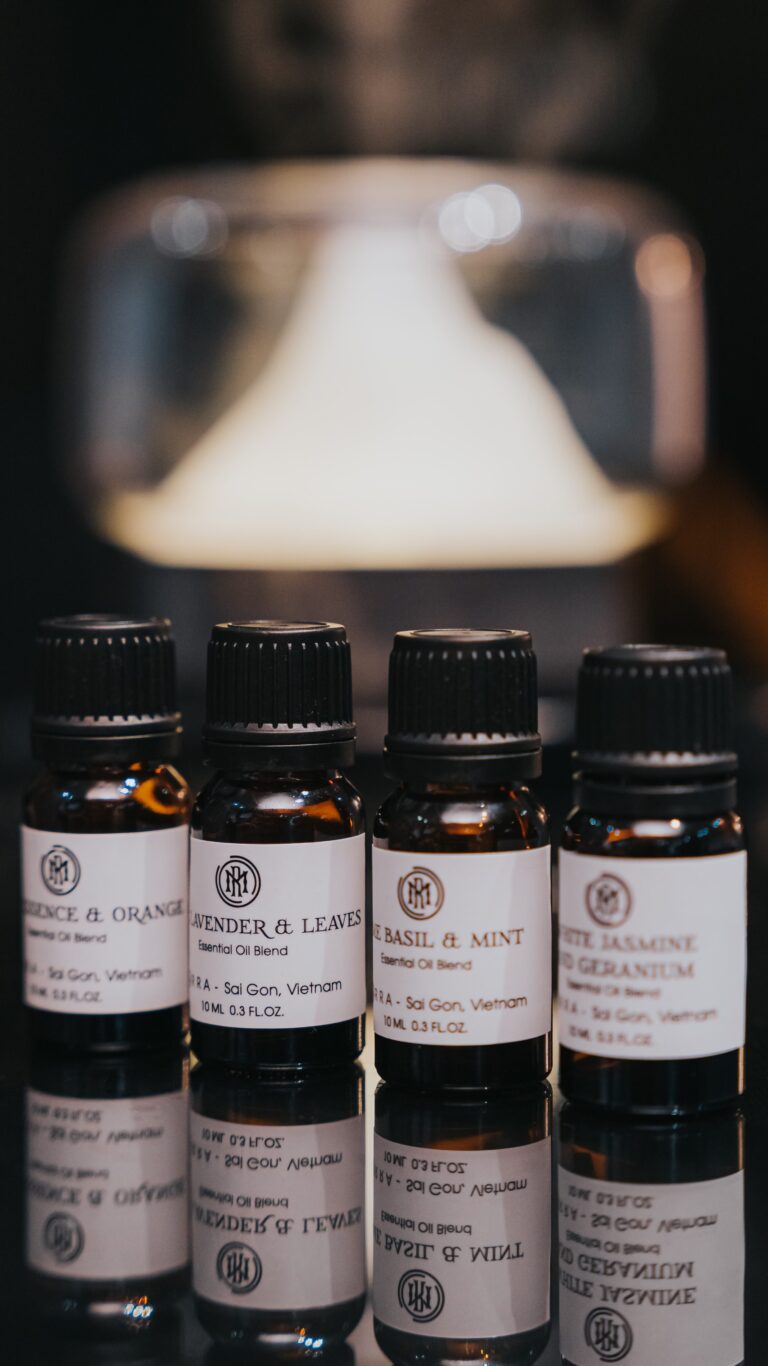
Aromatherapy, also known as essential oil therapy, refers to alternative or complementary treatments that make use of essential oils and other components from aromatic plants. Since nearly 6,000 BC, essential oils have been used to improve health and mood. National Association for Holistic Aromatherapy defines aromatherapy as “the therapeutic and medicinal application of aromatic substances for holistic health.”
These essential oils can have different degrees of antimicrobial activity. However, they also have antiviral and antifungal properties. Aromatherapy can help with psoriasis, nausea, muscle or body aches, anxiety, stress, depression, fatigue, insomnia, blood pressure problems, menstrual problems and menopause problems, hair loss and certain types of psoriasis.
Types of applications
Aromatherapy treatments can be applied topically or inhaled.
Inhalation: These oils are vaporized into the air by using a spray, a dispenser cup or oil droplets. The person then inhales the scents. The brain is affected by scent molecules when they reach it. This system depends on emotions, heart beat, blood pressure, respiration and memory. Stress and hormones balance. This is how it has created balance. The body has a holistic effect.
Topical applications It is absorbed in the Massage oils can be added to your bath or skin care products to improve skin health products. Essential oils should never be applied directly to the skin.. Always dilute it with carrier oil (almond or olive oil).
Which oil offers what benefit?
Basil Essential oil is used to boost concentration and reduce symptoms of depression. It is also good for migraines and headaches. It should be Avoid during pregnancy.
Bergamot Essential oil is said be good for the bladder and digestive system. Combining it with eucalyptus essential oil can relieve the skin problems caused Stress and chickenpox.
Black pepper Essential oil is used extensively to stimulate blood circulation, relieve muscle aches, and bruises. It can also be combined with ginger essential oil to help reduce arthritis.
Chamomile Essential oil can be used to treat eczema.
Clove The most common use of essential oil for topical purposes is to rub it on the skin. A pain relief It is used to treat toothache. It is also used for preventing vomiting, nausea, or intestinal gas. It is an antimicrobial and antioxidant agent with antifungal properties.
Eucalyptus Essential oil can be used to reduce inflammation of the airways. Flu or cold. It is often used in combination with mint. Some people react to eucalyptus. It should be avoided.
Jasmine Essential oil has been described by some as an aphrodisiac.
Lavender The oil is useful for minor cuts and burns, relaxation, as well as to enhance the quality of your life. sleep quality. It is believed to alleviate migraine symptoms and headaches.
Lemon Essential oil can be used to increase mood and relieve stress. Depression symptoms.
Rosemary essential oil helps healthy hair Boosts memory and growth.
Tea tree Essential oil has antimicrobial, antiseptic and disinfectant properties. It is commonly used in shampoos. skin care Products to treat burns, acne, and bites. It can be found as a mouth rinse, but should not be swallowed.
Thyme Essential oil is believed to reduce fatigue, irritation, and stress.
Yarrow Essential oil reduces inflammation and symptoms of the flu and cold.
I am meeting an aromatherapist.
The aromatherapist must gather information about the person’s complete medical history, current health, and lifestyle before drawing any conclusions. Aromatherapy is a holistic approach. Aromatherapy should be suitable for the recipient. Mental and physical Individual needs. Based on the individual’s needs, an aromatherapist might recommend one oil or a combination of several oils.
There are risks
Each essential oil is unique and should be discussed with a licensed aromatherapist, pharmacist, doctor, physiotherapist or massage therapist before you apply or use oil for healing purposes. The professional will instruct the user on proper application and dilution.
Not all Oils are a great way to get your oily skin. Essential oils cause reactions within the body that can affect everyone. Combining essential oils with other medications can lead to adverse side effects. They may also reduce the effectiveness of medications. Effectiveness of drugs can exacerbate health problems in the individual. People with high blood pressure, epilepsy, and pregnant or lactating women are all candidates. People with certain diseases should not use it.
After using essential oils multiple times, some people can develop allergies. The person should discontinue using the essential oil immediately after experiencing an allergic reaction.